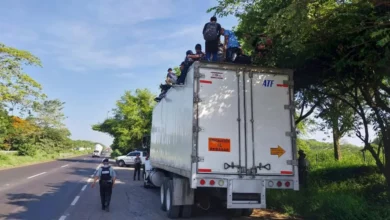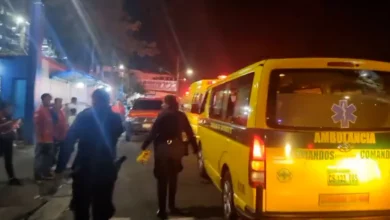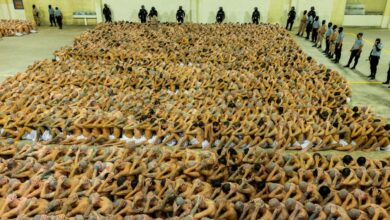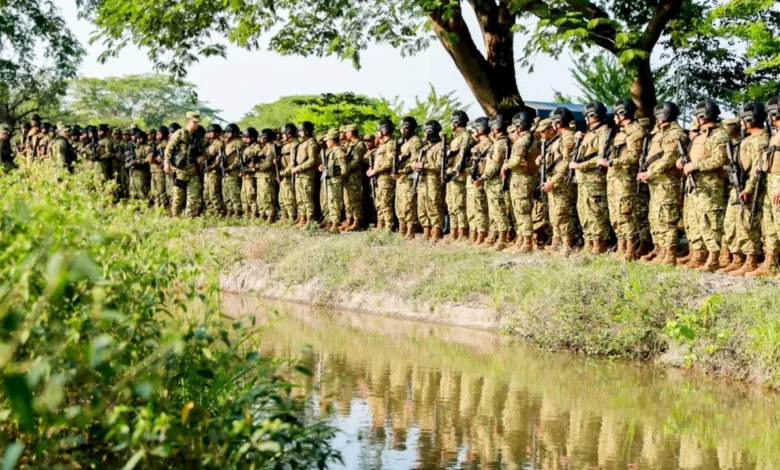
Thousands of security forces in El Salvador surrounded a northern town on Wednesday in a bid to arrest those behind the alleged gang-related killing of a police officer, according to President Nayib Bukele.
“They will pay dearly for the murder of our hero,” Bukele said on Twitter, saying some 5,000 members of the armed forces and 500 police officers were sent to the municipality of Nueva Concepción “in search of those responsible for the homicide, and the entire gang structure and collaborators who are still hiding in that place,” he wrote.
The police say the officer was killed in Nueva Concepción when gang members attacked him and other officers while on patrol. “One terrorist was captured at the scene. We execute an operation to find the other responsible parties,” the police wrote on Twitter Tuesday.
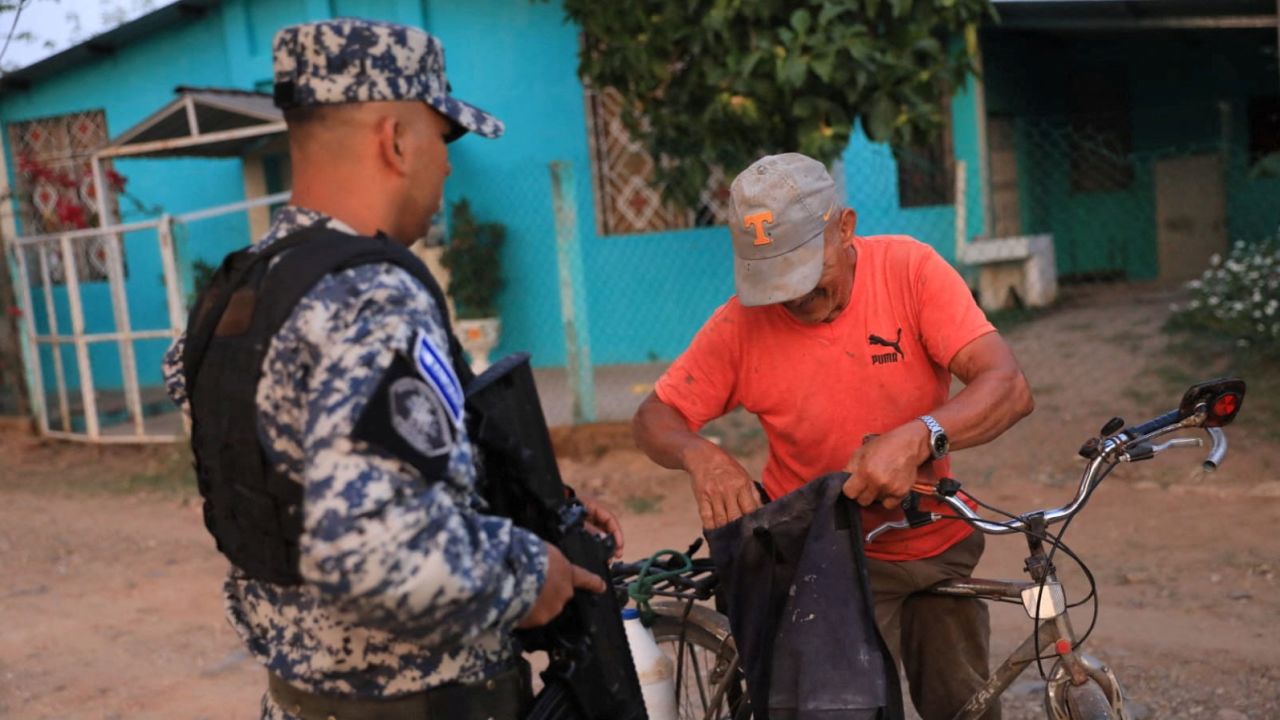
Constitutional rights have been suspended in the country, including freedom of assembly, after Bukele declared a state of emergency with the support of his country’s Legislative Assembly, controlled by his “New Ideas” party, in 2022.
It has enabled security forces to arrest thousands of people, suspected to be gang members, while suspending their right to legal defense and to be charged without conviction. Some 64,000 people have been arrested since the state of emergency began, some of whom have been transferred to a megaprison earlier this year.
Similar security operations have taken place under the state of emergency, where forces have surrounded areas considered dangerous in a bid to tackle gang members.
Criminal gangs in El Salvador trace their origins to those formed in the United States by Salvadoran immigrants fleeing the country’s civil war in the 1980s. More than 330,000 Salvadorans came to the US between 1985 and 1990, according to the Migration Policy Institute.
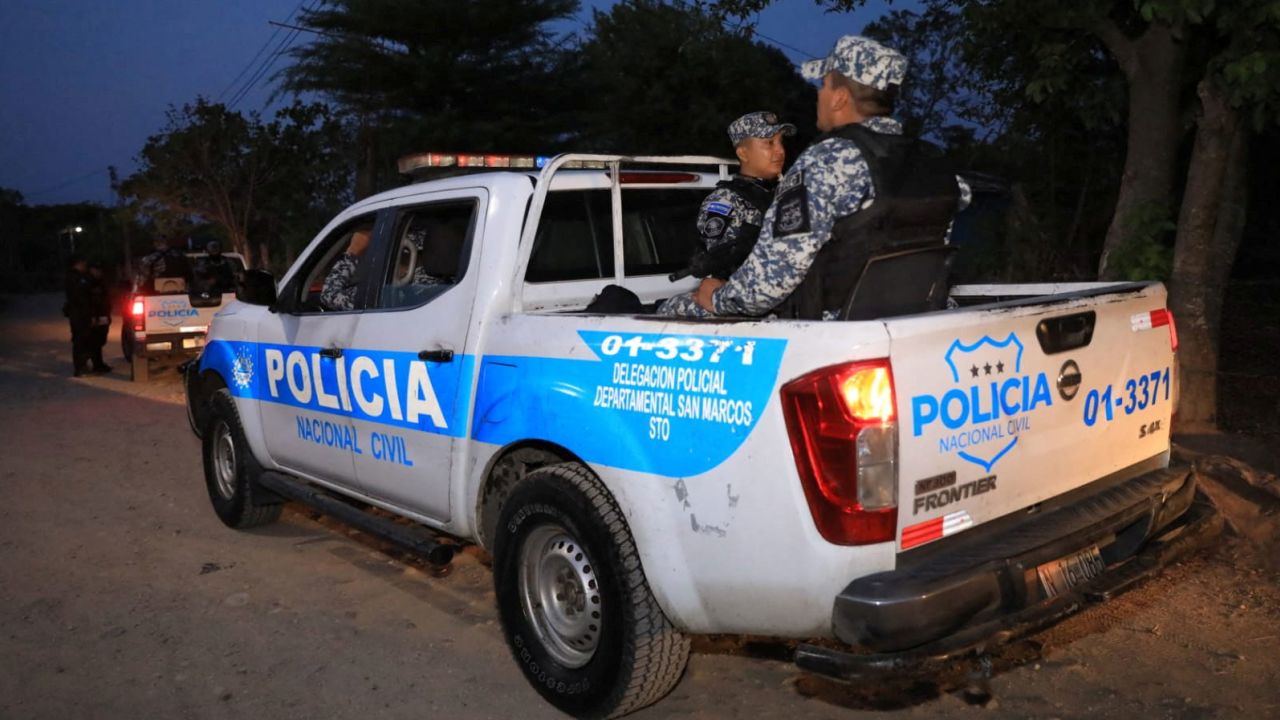
In the 1990s, US immigration authorities deported large numbers of MS-13 gang members, many of whom had arrived as children, back to their home countries – El Salvador for most. Once there, these groups metastasized, controlling vast portions of the country and making life miserable for many law-abiding citizens.
But as rights groups say innocent people have been swept up in Bukele’s anti-gang dragnet, and document human rights abuses, the President’s iron-fisted approach to crime continues to win him fans in the country and abroad.
As of November last year, according to a poll by Salvadoran newspaper La Prensa Gráfica, 89% of Salvadoreans approved of their president.

